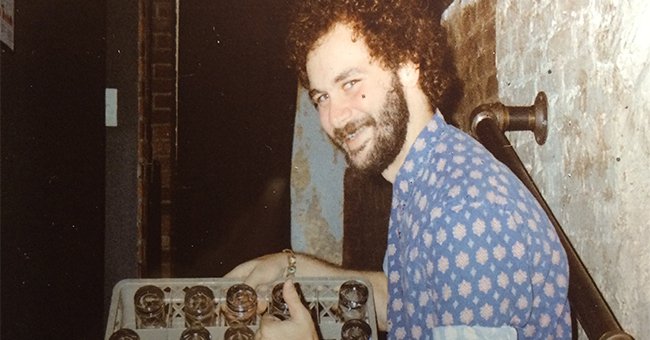Customers unfamiliar with the service industry often see barbacks simply as the person who, bafflingly, can’t take their order. What they can’t see is that barbacks are doing almost everything but straining the shaker, and that without their help, drinks would never cross the bar. “We’re like the gears in a watch,” says Robert Sachse, a barback at Manhattan’s bustling mixology bar Nitecap. “You don’t look at them, but it can’t work without them.”
Sachse took his first barbacking job three years ago on a whim (although not without a little desperation): he was living in St. Louis, he was in need of money, and he noticed a “help wanted” sign for a local bar. Once hired, he found he liked the requirements and rhythm of the job: downtime was rare, and because he needed to support every member of the staff, his nights were an eclectic mix of responsibilities. “You’ll never do the breadth of [someone else’s] job,” he explains, “but you fill in to create pockets of time for them to attend fully to guests.”
When Sachse decided to move to New York City, his head bartender in St. Louis sent him to Nitecap with a stellar personal recommendation. “I drove into town with no job prospects and came here with a résumé my first night, before I even started unpacking.” But a problem emerged: after dropping the same résumé at two other bars, Sachse noticed a typo, a mistake that could warrant instant rejection in New York. He fixed it, emailed it to the manager, and dropped off a corrected hard copy at the bar. “I got an email the next day asking me to come in,” he says. “They liked my persistence.”
That persistence and attention to detail makes a great barback, Sachse explains. He now hires and trains new barbacks at Nitecap, which has honed his awareness of which sensibilities and personality traits are most important for the job. Being attentive is the first requirement. Sachse’s mind is a running tally of which ingredients or glasses the bartenders will run out of first, determined by tracking which drinks they’re sending out. “I tell people they have to have a sense of urgency at all times,” he says. “While you’re doing one thing, you need to also be deciding what three things you should do next.”
Keeping things humming at an even pace is essential to fostering a symbiotic relationship with bartenders, which Sachse argues is the most important part of a barback’s job. He likens it to the relationship between a racecar driver and the pit crew: like a mechanic, a barback should make their bartender’s job seem (and to the extent that it’s possible, feel) effortless. Fostering this kind of close partnership is Sachse’s favorite part of the job.
It’s also what he keeps in mind when he works with a new bartender, a situation rife with potential for tension. Rather than use his knowledge of Nitecap’s inner workings to make a new staff member feel challenged, Sachse uses it to give them a sense of comfort and control. “Being combative is counterproductive,” he says. “The stronger they get, the easier your job gets, and the more you can do for the rest of the bar.”
Despite his love for being the glue that holds the bar together, like most barbacks, Sachse sees his position as transitional. In his time at Nitecap he’s learned the intricacies of its workings and service style, and he plans to one day put it to use mixing drinks. He considers his drive essential to being an effective barback: “Ambition is what gets you through those really grinding moments.” And although he’s encountered fantastic lifetime-barbacks in his career, at a place like Nitecap with complex drinks and a stressful environment, it’s the barbacks with the drive to pour who are most eager to learn.
One thing is certain, though: Sachse sees a long career ahead of him. “I love working in the service industry, he says, “because you’re part of building a family.”




